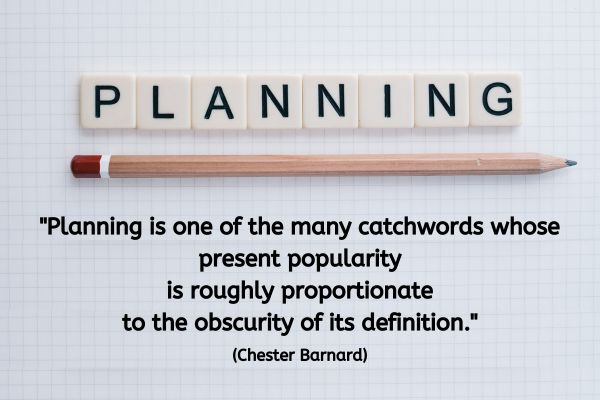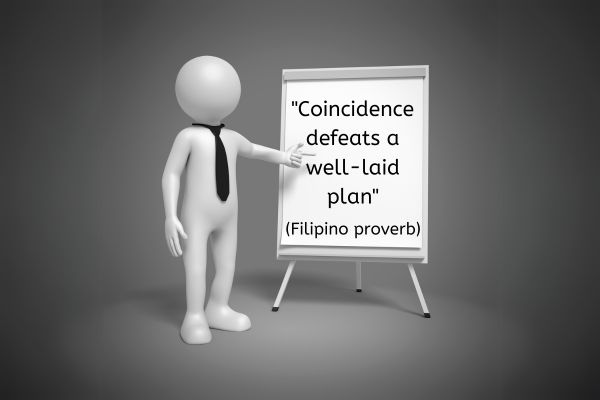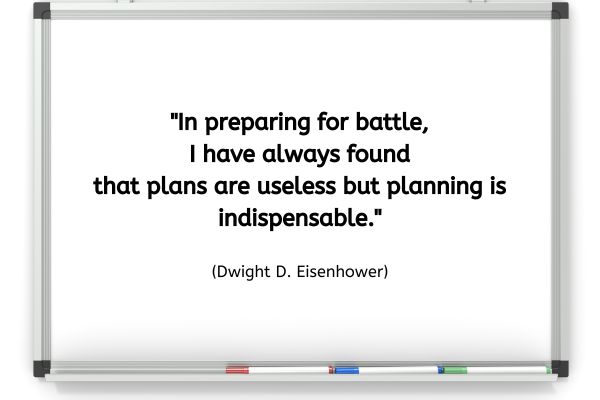“Planning and Possibility: How Clear Are Your Plans?”

“Planning is one of the many catchwords whose present popularity is roughly proportionate to the obscurity of its definition.”
— Chester Barnard
Chester Barnard, a notable executive and author on organizational management, highlighted the complexity of planning long before it became a buzzword in personal development. His observation encourages us to pause and reflect: what do we actually mean by “planning,” and is it truly serving us?
Is This the Right Goal for You?
In coaching conversations, planning often surfaces when clients are working toward achieving a specific goal. But before diving into how to get there, a critical first step is often overlooked: is this goal something they truly want?
Clients can find themselves chasing goals that feel logical — the next step on a traditional path — or goals that others expect of them. When this happens, the plan becomes a chore rather than a source of inspiration. As coaches, we can help clients pause and ask:
- Is this goal something I would love?
- Or is it something I feel I should want?
This simple exploration can shift the entire planning process from obligation to inspiration, creating a foundation that feels aligned and authentic.
Staying Open to Insight and Spontaneity
Once a goal is clear, how do we plan in a way that supports progress while staying open to spontaneity and insight? Rigid plans can sometimes narrow our vision, causing us to miss opportunities that arise along the way.
Consider asking:
- Are you looking for the next step, or a next step?
- How might you hold your plan lightly, allowing space for creativity and unexpected opportunities?
Staying flexible doesn’t mean abandoning planning altogether; it’s about finding the balance between structure and flow. This mindset can lead to richer, more fulfilling outcomes than a tightly controlled roadmap ever could.
Plans: A Launchpad or a Holding Pattern?
Not all plans move us forward. Some plans keep us stuck in perpetual preparation, a state of “not quite ready yet.” When planning becomes a way to avoid action or uncertainty, it’s worth examining the plan itself:
- Is your plan helping you move forward, or is it keeping you stuck?
- What’s one small action you could take today, even if your plan isn’t perfect?
The courage to act, even imperfectly, often sparks momentum and clarity that no amount of planning can replicate.
Coaching the Paradox of Planning and Uncertainty
As coaches, part of our role is to help clients embrace the paradox of planning: to create a vision for the future while staying grounded in the present. Plans are useful tools, but they are not the whole picture.
- How does your coaching practice help clients hold space for uncertainty alongside their plans?
- How might you support them in seeing plans as guides, not guarantees?
By helping clients navigate this delicate balance, we encourage them to remain curious, flexible, and open to the unexpected — qualities that often lead to the most meaningful growth.
Closing Reflection
Planning has its place, but it’s the clarity of intention and openness to insight that truly propel us forward. As Chester Barnard reminds us, planning can easily become a vague buzzword. Let’s bring it back to its essence: a tool to support action, not a substitute for it.
How might you, as a coach, help your clients approach planning with fresh eyes? And where in your own life could you hold a plan a little more lightly??
About Jen Waller

Jen Waller is a transformative coach dedicated to empowering individuals to get out of their own way and make a meaningful impact in the world. With an impactful, nurturing coaching style, Jen supports clients in unlocking their potential and achieving their goals. As an experienced coach and trainer, she guides clients from self-doubt to success.
Discover how Jen can support you to get out of your own way here




